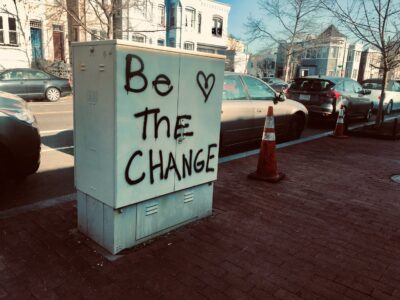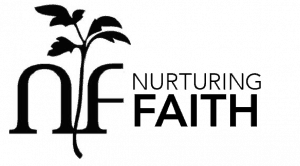To pray for Israel and the Middle East is to step into a messy field of hostility going back eons—not just to the formation of the Jewish state in 1948 following the Holocaust. No, that was not the beginning. We have to go all the way back in Judeo-Christian biblical history to see the hostilities that emerged in the early centuries of humanity.
You can actually trace it back to dysfunctional families like Abraham’s! Yes, the patriarch of our faith muddled his way at times; and ill will fermented in Hagar, his concubine, and Ishmael, their son, when Sarah finally conceived Isaac and jealously mistreated Hagar and Ishmael. Sin is systemic in families and spreads to clans, tribes, and nations.
Hatred sprang up between Jacob and Esau, due to the favoritism of Isaac and Rebecca; and eventually Jacob’s family was embroiled in jealousies between the sons of two wives, resulting in Joseph being sold into slavery in Egypt. This isn’t just ancient Israelite history, but the Middle Eastern animosities are fueled by those systemic failures in their most revered patriarchal families. It is repeated in other people groups the world over. Our poor familial relationships morph into societal upheaval as the centuries roll along. And it gets into our social and political systems.

So, to pray for Israel, Palestine, Lebanon, and all the Middle East, we must look closer to home and first begin to pray for human hearts to change—even our own. That is a tall order, but it is the only way to peace. One of the great promises regarding prayer is in the Old Testament, II Chronicles 7:14: “If my people who are called by my name will humble themselves, pray, seek my face, and turn from their wicked ways, then I will hear from heaven, and will forgive their sin and heal their land.”
God offers a wonderful promise, but prefaces it with that big little word: IF. “If my people. . .” The offer begins with God’s people—those who are called by His name, or those who call on His name—those who are known as believers in God as Creator and Deliverer, and who trust Him enough to pray.
IF God’s people will humble themselves—step back, quit shouting, cease demanding, murmuring, bickering, threatening, retaliating—and do what? PRAY! He even tells us how to pray—simply “seek God’s Face.” In other words, it’s not about creating eloquent words and phrases from the mind or great prayer conferences. It’s about praying out of the heart longings in the soul, face to face with God, getting down deep and honest in real fervent prayer. Mean it. Get personal with Almighty God.

And what does He say to do next? “Turn from their wicked ways.” What? The enemy is the one with wicked ways, right? Surely, not God’s people who are called by His name and who call upon His name, and seek to live by His righteous will. Not us! The violent offenders, they have wicked ways. We church-going, law-abiding citizens don’t have wicked ways. Do we? But, then the prophet Isaiah rises up to remind us of his prayer in his day, confessing, “We have all become like one who is unclean, and all our righteous deeds are like a filthy cloth.” Ouch. That same indictment is sounded in the New Testament, in Romans 3:10–11: “There is no one who is righteous, not even one; there is no one who has understanding, there is no one who seeks God.” And we know there is truth in that assessment.
To turn from our wicked ways is to first of all agree with God that in His sight our ways are sometimes wicked and we are without the understanding He wants us to embrace. The Psalmist prayed the prayer we need to pray: “Search me, O God, and know my heart; test me and know my thoughts. See if there is any wicked way in me, and lead me in the way everlasting (Psalm 139:23–24).” So, first we must examine our own hearts to see if there are barriers within our own lives to the answers to prayer that we seek.
Consider the ways we may perpetuate ill will in the world by our own judgments and requirements expected or demanded of others. Notice the ways we fail to do the simple things God requires—like “to do justice and to love kindness and to walk humbly with your God” (Micah 6:8). For those of us who believe in Jesus as the Messiah, our Savior and Lord, we also have His command to love God supremely and to love one another selflessly.

The offer for finding peace in the world is clear—to humble ourselves, seek God’s Face, turn from our wicked ways. THEN God says, “I will hear from Heaven and will forgive their sin and heal their land.” If we really want our land healed so that all people can live safe, free and at peace—with clean water, good food, meaningful livelihood, and harmonious relationships—this is the path we must take. Sounds like a good deal to me. We surely aren’t making progress toward peace any other way. So, let’s pray:
Father All Glorious, and over all victorious, we turn to you confessing that we have failed to love as you call us to love, and we have failed to live as you want us to live. Our world is writhing in pain, and we are helpless to make much change. So, we come willing to change ourselves first, from the inside out. But, we are not even capable of that. Just as the leopard cannot change his spots, we cannot rid ourselves of all unrighteous thoughts, words and actions. Sin has been imbedded into our very nature, enmeshed even in our unconscious thoughts and comes to us in myriads of ways from our culture.
But, we are assured through your Word that Jesus is the Way, the Truth, and the Life. Through His work of Grace by His Spirit, we can be transformed to live and care for others and walk obediently with You. Through His work of redemption in us, we can walk in the way of truth that leads to the life we most want and need. One person at a time, the world can be changed. Lord, let it begin with me. Here I am to humble myself, pray, seek Your face and turn from my wicked ways. As the Psalmist prayed long ago, “Create in me a clean heart, O God, and put a new and right spirit within me” (Psalm 51:10). Help me see what I have ignored and renew a right way of being in my life, through Your Amazing Grace in Christ Jesus, our Lord. Amen.
Scripture quotations are taken from the New Revised Standard Version Updated Edition.
Copyright © 2021 National Council of Churches of Christ in the United States of America.
Used by permission. All rights reserved worldwide.




